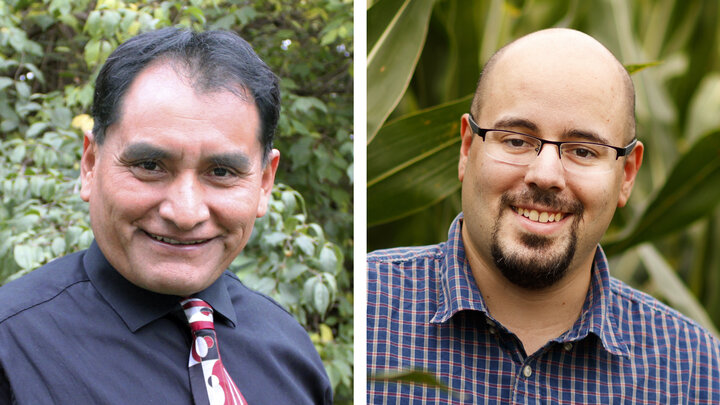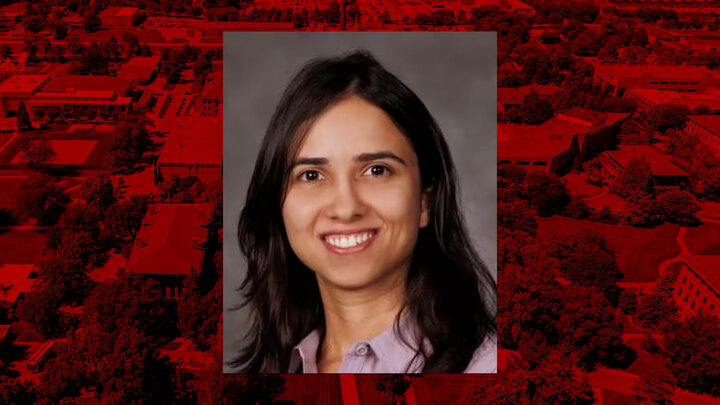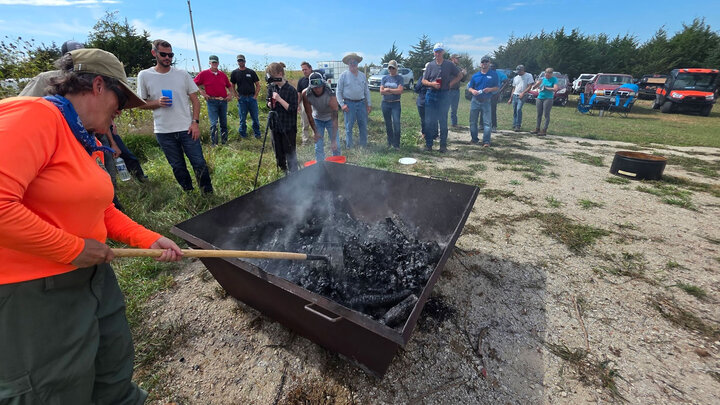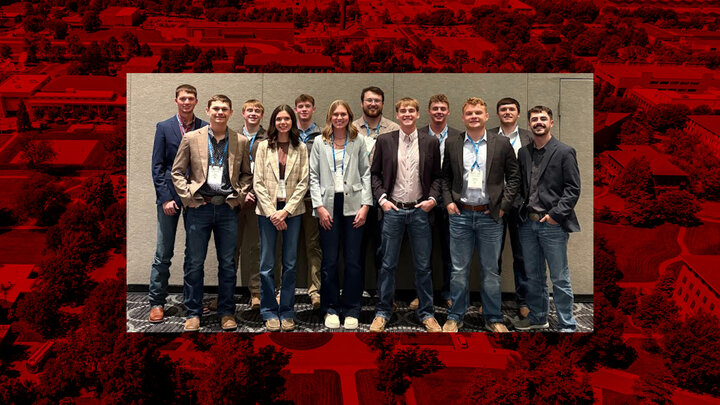The University of Nebraska–Lincoln honors faculty to receive promotion and/or tenure in 2019, including James Schnable, at a celebration April 23 at the Lincoln Station. Courtesy Office of the Executive Vice Chancellor
Two Department of Agronomy and Horticulture faculty will receive promotion and/or tenure in 2019. They were honored April 23, along with 96 fellow University of Nebraska–Lincoln faculty members, during a celebration at the Lincoln Station.
Humberto Blanco, was promoted to professor. Blanco received a Bachelor of Science degree in agricultural engineering from the Technical University of Oruro, Bolivia, and a Master of Science and doctorate in soil science from the University of Missouri. He began his career at Nebraska in 2012 and his area of focus is in soil management and applied soil physics. Prior to joining the university, he was an assistant and associate professor at Kansas State University.
Blanco’s research is on field applications of soil physical processes and properties that influence water, carbon, and nutrient cycling under different management scenarios including cover crops, crop residue removal, conservation tillage, diversified cropping systems, dedicated bioenergy crops and others. He has published over 100 journal articles on these topics. Recently, he has been assessing the potential of cover crops to deliver multiple ecosystem services including livestock and biofuel production and assessing the implications of biochar use for managing low organic matter or degraded soils.
His research is linked with undergraduate and graduate instruction. Blanco teaches classes in soil management, applied soil physics and soil-water-nutrient relationships and uses the field as his laboratory for these courses.
Blanco said he’s constantly exploring new teaching strategies to further enhance student learning. “My teaching philosophy is to actively involve students in the learning process through hands-on, practical experiences as well as in interactive lecture discussions,” he said.
James Schnable, was promoted to associate professor and granted tenure. Schnable received a bachelor’s degree in biology from Cornell University and a doctorate in plant biology from the University of California-Berkeley. He began his career at Nebraska as an assistant professor in 2014 when he was hired as part of an IANR-wide effort to build strength in the emerging area of the quantitative life sciences.
Schnable arrived on campus to launch a research program focused on in silico comparative genomics but was quickly engaged by the University of Nebraska–Lincoln’s high-throughput plant phenotyping — the process of capturing a plant’s physical and biochemical properties — and quantitative genetics efforts. Today, he conducts research on maize and sorghum on the computer, in the greenhouse and in the field. His research program has grown to involve and depend on collaborations with engineers, computer scientists, statisticians and food scientists.
The expansion of research responsibilities has paid off for Schnable who has more than 60 peer-reviewed publications, and federal research grants from the National Science Foundation, U.S. Department of Agriculture, Advanced Research Projects Agency–Energy and Foundation for Food and Agriculture Research.
“It still amazes me that I could be hired as a computational biologist and within three or four years be growing corn yield plots from Wahoo to Grant, Nebraska,” Schnable said. “I think that’s the speed of career and intellectual growth that would only have been possible here at Nebraska.”




